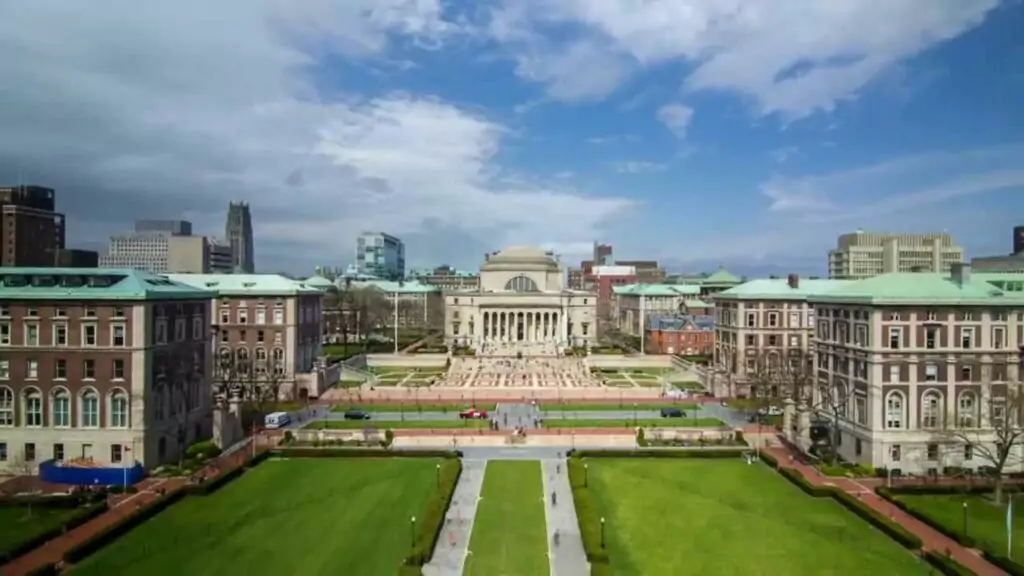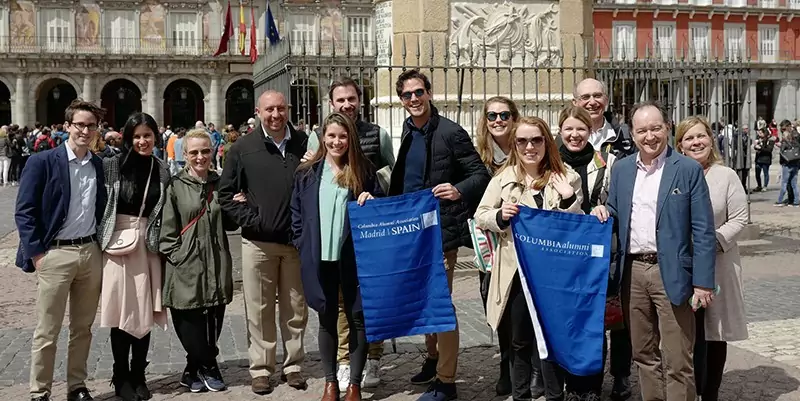In the prestigious hallways of Columbia University, a student stands at the crossroads of his academic and career paths. The decision ahead is not just about choosing a major but about finding the fragile balance between passion and pragmatism. This problem, recently shared on Reddit, brings to the fore a broader debate many have pondered: Should one follow the tempting allure of passion, even when faced with potential economic and career setbacks?

✅ AI Essay Writer ✅ AI Detector ✅ Plagchecker ✅ Paraphraser
✅ Summarizer ✅ Citation Generator
Key Takeaways:
- Adaptability in learning and merging diverse skills can be beneficial in the long run.
- While the academic route in humanities is tough, many Ivy League graduates have found immense success in fields that value the skills and perspectives nurtured by such an education.
- It’s essential for students to continually reassess and align their academic choices with both their passion and the current job market realities. A blended approach, prioritizing both practical skills and passion subjects, can lead to a fulfilling and successful career.
The digital world is often seen as a treasure trove of cat memes and quirky challenges. Yet, at its heart, platforms like Reddit offer a sanctuary for genuine human connection and heartfelt advice. It was on such a platform that our Columbia student shared his story.
Finding himself in the towering presence of an Ivy League institution, this student from a humble rural background hoped for clarity in defining his career path. Initially drawn to Biology with aspirations of becoming an oral surgeon, his passion soon swayed toward the captivating world of the humanities. Literature and language classes ignited a spark that tedious hours with Chemistry failed to provide. Yet, passion was shadowed by practical concerns. The frightening tales of joblessness after his humanities degree weighed heavily on his decision-making. While they dreamt of professorial lectures and engaging discussions, he couldn’t shake off the nagging fear of ending up jobless, even with an elite Ph.D. in hand.
Their sincere plea was simple: Is an Ivy League humanities degree worth the risk? Does it ensure a brighter future in academia? He reached out to the Reddit community, particularly seeking insights from those who had once struggled with the same decision of choosing between passion and practicality.
Ivy League institutions have long been considered the pinnacle of academic excellence, their degrees carrying a prestige that often extends beyond the walls of academia. Given this reputation, it’s understandable for students like our conflicted friend at Columbia to believe that such an elite degree might provide a competitive edge in the humanities. But does the golden glow of an Ivy League stamp guarantee a brighter future in academia?

Apparently, it doesn’t. The very reality of academia, especially for humanities, is not always rosy. As one perspective revealed,
“A teaching career in the humanities is possible, but you’ll likely have your labor exploited for years as an adjunct and then move to whatever corner of the country has offered you a job.”
The academic journey might not always lead to the esteemed lecture halls of prestigious universities. More than 90% of academic jobs can be harsh adjunct positions with heavy loads and little security.
Adding to the challenging environment is the observation of the odds stacked against aspiring professors. With statistics indicating a grim ratio of tenure-track job openings to new Ph.D. graduates, the dream of academia becomes a high-stakes gamble. Even more troubling is that many in pure humanities come backed by family wealth, allowing them to withstand multiple postdoctoral positions without financial strain while others grapple with life’s pressing challenges.
“In the case of the pure humanities, you will come up against a lot of people with family wealth: people who can do multiple postdocs without impacting their standard of living in the slightest, while you’ll come up against real-life issues like wanting to start a family.”
Amidst the complexities, there’s a glimmer of optimism, suggesting that there’s merit in considering the humanities, even if a PhD isn’t immediately on the horizon. Blending passion with practicality might be the key, as reflected in the notion that one can pursue humanities on the side, even while focusing on a straightforward career like an oral surgeon.
“I wouldn’t plan to do a PhD just yet, but I would consider the humanities for other reasons. On the other hand, oral surgeon is very straightforward and you can also do humanities stuff on the side for yourself. It all depends on your interests and goals.”
But, before plunging into the demanding waters of a humanities Ph.D., it’s imperative to introspect. A Ph.D. is not just about academia. It’s a life choice that demands years of commitment. As one comment astutely advises, it’s wise not to embark on this journey with professorship as the only goal but to be open to diverse avenues that might benefit from such a profound level of expertise.
Practical Advice for Students at the Crossroads
Guidance becomes invaluable at the hard crossroads of academia and ambition, where passion battles with practicality. Based on the numerous insights and lived experiences shared, several valuable steps emerge for students finding themselves at similar junctions:
Re-Evaluate Your Goals
Before immersing into academia, taking stock of what you truly want is vital. While an academic career might be alluring, remember, there are plenty of paths that can be carved out with a humanities background, from law to nonprofit sectors.
Be Prepared for an Uphill Battle
If academia is the dream, brace for a demanding journey. The reality is that even with a degree from a top institution, many find themselves in adjunct positions, juggling multiple jobs, and facing a challenging path to tenure.
Seek Alternate Funding and Opportunities
If pursuing advanced degrees, consider fully funded programs that won’t saddle you with debt. Look beyond traditional academic roles and be open to positions in nonprofits, publishing, consulting, or other areas where analytical and critical thinking skills are prized.
Diversify Skill Sets
Irrespective of your major, consider supplementing your education with skills that increase employability, such as data analytics, digital marketing, or even grant writing. Such skills can make you attractive to a broader range of employers.
Network with Alumni
Leverage the vast network of Ivy League alumni. Seek mentorship, explore internship opportunities, and glean insights from those who’ve walked the path before you. Their experiences can offer a realistic picture and open doors to unexpected opportunities.

Blend Passion with Practicality
It doesn’t have to be an either/or scenario. One can forge a stable career, like dentistry, and still engage with the humanities, ensuring both financial security and personal fulfillment.
Stay Updated
It’s essential to keep a pulse on the evolving world of academia. Regularly review the job market, tenure opportunities, and the shifting sands of humanities fields to make informed choices.
While the choice between passion and practicality is deeply personal and varies for each individual, these steps aim to provide a compass to navigate the intricate maze of academic aspirations. Armed with such guidance, students can approach their future with a balance of hope, pragmatism, and purpose.
Follow us on Reddit for more insights and updates.





Comments (0)
Welcome to A*Help comments!
We’re all about debate and discussion at A*Help.
We value the diverse opinions of users, so you may find points of view that you don’t agree with. And that’s cool. However, there are certain things we’re not OK with: attempts to manipulate our data in any way, for example, or the posting of discriminative, offensive, hateful, or disparaging material.